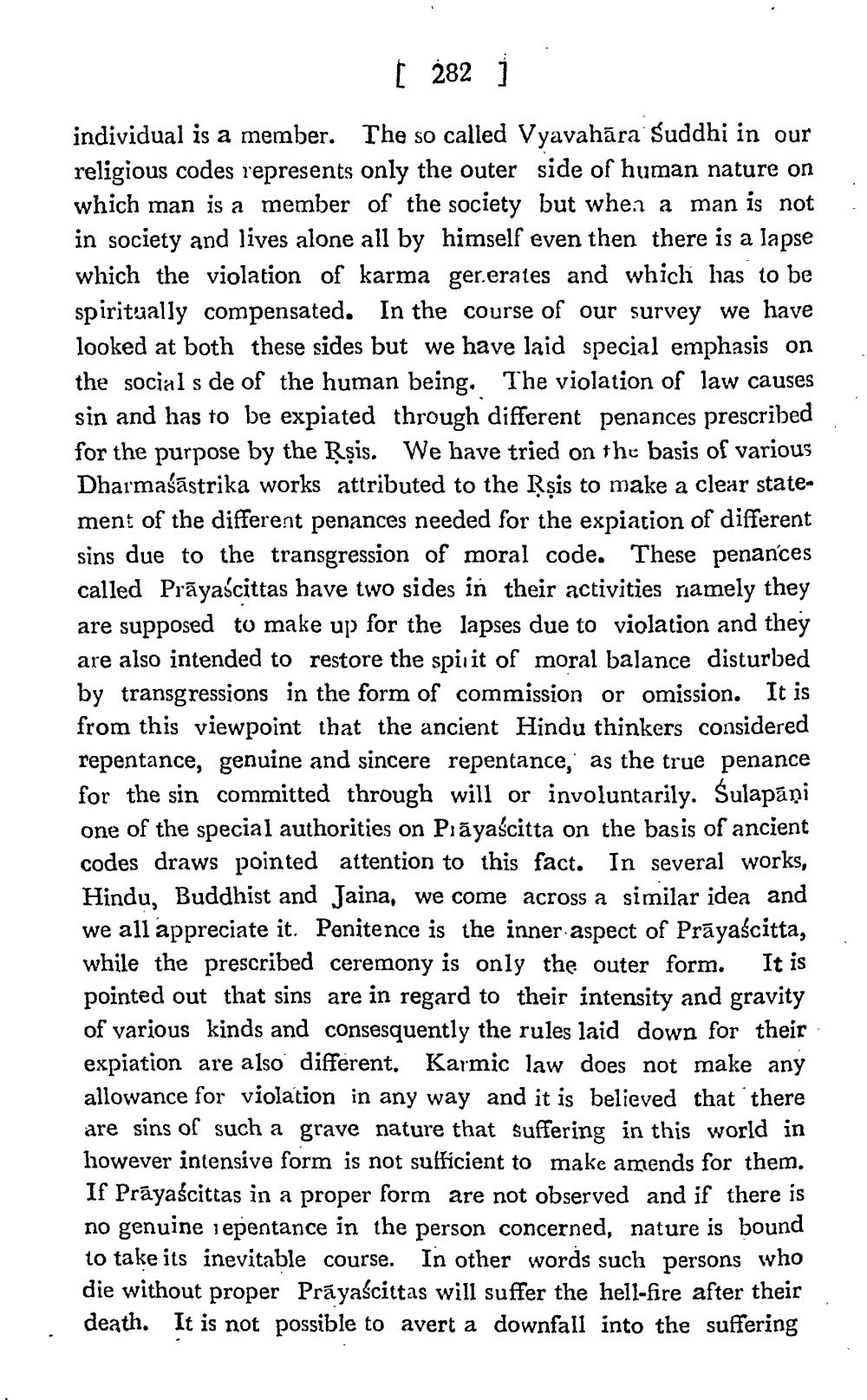________________
[ 282 ]
individual is a member. The so called Vyavahāra Suddhi in our religious codes represents only the outer side of human nature on which man is a member of the society but when a man is not in society and lives alone all by himself even then there is a lapse which the violation of karma ger.erates and which has to be spiritually compensated. In the course of our survey we have looked at both these sides but we have laid special emphasis on the social s de of the human being. The violation of law causes sin and has to be expiated through different penances prescribed for the purpose by the Rṣis. We have tried on the basis of various Dharmasastrika works attributed to the Rṣis to make a clear statement of the different penances needed for the expiation of different sins due to the transgression of moral code. These penances called Prayaścittas have two sides in their activities namely they are supposed to make up for the lapses due to violation and they are also intended to restore the spirit of moral balance disturbed by transgressions in the form of commission or omission. It is from this viewpoint that the ancient Hindu thinkers considered repentance, genuine and sincere repentance, as the true penance for the sin committed through will or involuntarily. Śulapāņi one of the special authorities on Prayaścitta on the basis of ancient codes draws pointed attention to this fact. In several works, Hindu, Buddhist and Jaina, we come across a similar idea and we all appreciate it. Penitence is the inner aspect of Prayaścitta, while the prescribed ceremony is only the outer form. It is pointed out that sins are in regard to their intensity and gravity of various kinds and consesquently the rules laid down for their expiation are also different. Karmic law does not make any allowance for violation in any way and it is believed that there are sins of such a grave nature that suffering in this world in however intensive form is not sufficient to make amends for them. If Prayaścittas in a proper form are not observed and if there is no genuine repentance in the person concerned, nature is bound to take its inevitable course. In other words such persons who die without proper Prayaścittas will suffer the hell-fire after their death. It is not possible to avert a downfall into the suffering




